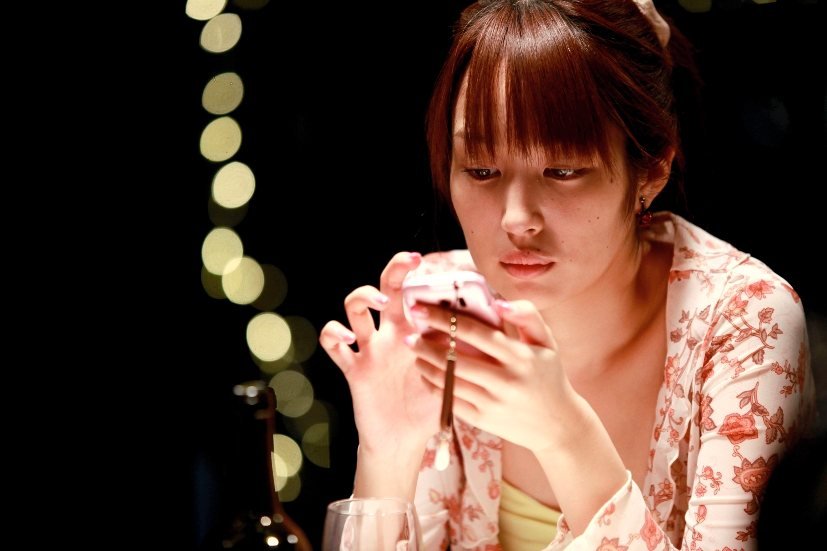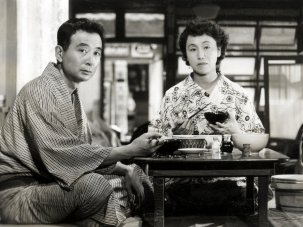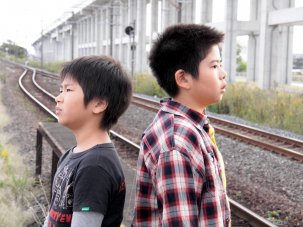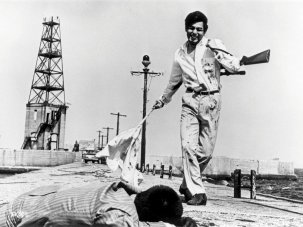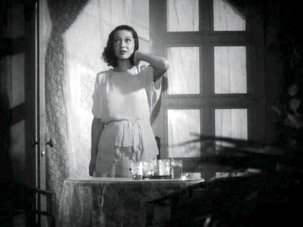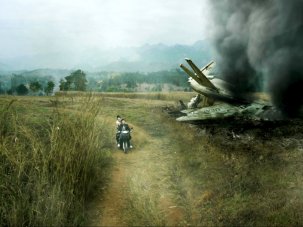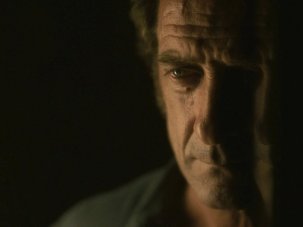Abbas Kiarostami throws a curveball with Like Someone in Love, a Japanese-French co-production filmed on locations in and around Tokyo with a high-calibre Japanese cast acting in Japanese. A Japanese film, then, perhaps in the vein of Kiarostami’s beloved Ozu? Yes and no.
France/Japan 2012
Certificate 12A 109m 34s
Crew
Director Abbas Kiarostami
Produced by Marin Karmitz, Horikoshi Kenzo
Written by Abbas Kiarostami
Director of Photography Yanagijima Katsumi
Editor Bahman Kiarostami
Art Director Isomi Toshihiro
Sound Kikuchi Nobuyuki, Mohamadreza Delpak
Cast
Watanabe Takashi Okuno Tadashi
Akiko Takanashi Rin
Higuchi Noriaki Kase Ryo
Hiroshi Denden
Dolby Digital
In Colour
[1.66:1]
Subtitles
Distributor New Wave Films
The film is certainly deeply Japanese: it’s rooted in the phenomenon, much discussed in Japan, of ‘paid dating’ (college students and high-school girls who casually prostitute themselves for pocket money, often in the care of a ‘protector’) and its grasp of Japanese manners, mores and language is faultless. And you could, at a stretch, think of it as an update of a film like Ozu’s Woman of Tokyo (Tokyo no Onna, 1933), in which a young woman prostitutes herself – she moonlights from a respectable office job – to pay for her younger brother’s education.
But the discreet formalism that underpins the film, such as the way it both opens and closes with fraught offscreen voices, is typical of Kiarostami and only very obliquely reminiscent of Ozu. The film is ultimately a morphed sequel to Through the Olive Trees (Zir-e Derkhatab-e Zeytun, 1994), the Kiarostami classic in which a young actress fends off persistent advances from an impoverished suitor who greatly irritates her.
The young woman here is Akiko (played by relative newcomer Takanashi Rin, also seen in Ishii Sogo’s Isn’t Anyone Alive?), a college student who is neither diligent nor particularly smart. She arrived in Tokyo two years ago from the sticks and now regrets having advertised her availability on a phone-kiosk flyer garnished with a ‘kooky’ schoolgirl photo of herself. She and her savvier friend Nagisa now work for the high-class pimp Hiroshi (Denden, a stand-up memorable as the psychotic killer in Cold Fish), who one evening rubbishes all her excuses to cry off and insists that she sees an ‘important’ client. This turns out to be the octogenarian writer/translator Watanabe (stage actor Okuno Tadashi), who is more interested in feeding and chatting with her than in anything sexual; Kiarostami draws a veil over what happens (or doesn’t) between them overnight.
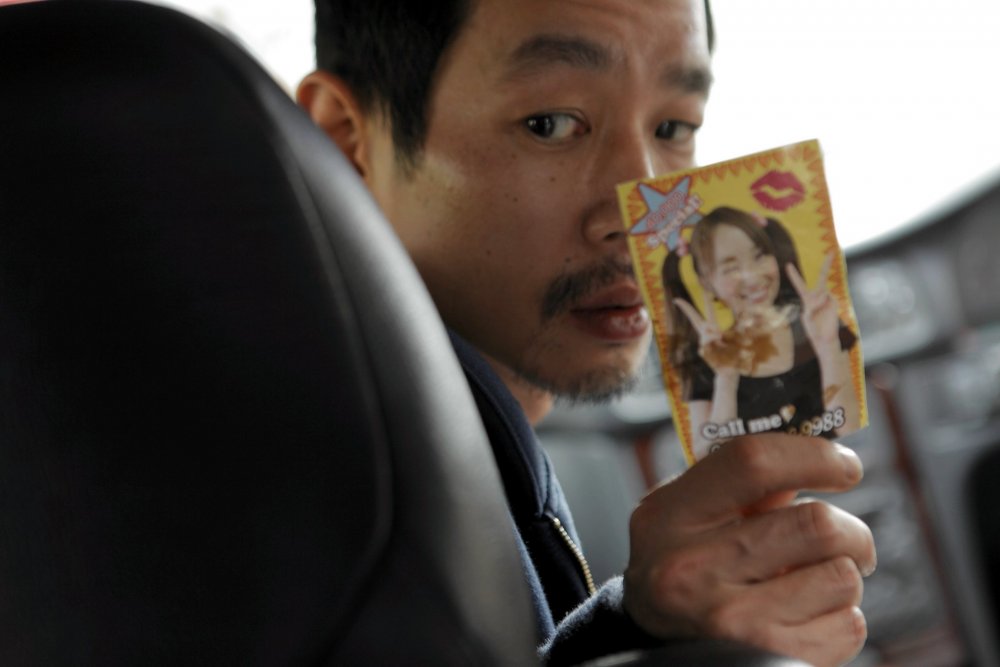
Next day, though, Watanabe is pulled into Akiko’s attempts to break free from the neurotically possessive Noriaki (Kase Ryo, Japan’s equivalent to Ben Whishaw, seen in films by Koreeda, Kitano and Clint Eastwood), a car mechanic who considers himself her boyfriend and is set on marrying her. Noriaki takes Watanabe for Akiko’s grandfather, but loses his rag completely when he accidentally learns the truth. Kiarostami gives us three main characters who don’t know or understand each other very well (how well do they even know themselves?) and explores their learning curves through a series of charged and anxious situations.
As in his last ‘international’ film Certified Copy, Kiarostami leaves much ambiguous and uncertain while providing plenty of tantalising backstory to digest. There’s a sense that he’s enjoying the chance to transpose some core concerns from his Iranian films into other contexts with other moralities, traditions and social norms.
Co-producer Horikoshi Kenzo reports that one of the starting points here was a flyer on which a girl advertised her sexual services (Kiarostami asked an elderly actress to go and find one on the street during an audition), and so we can guess at some of his thinking. With no Christian or Muslim tradition, Japan’s attitude to sex is relatively matter-of-fact and guilt-free; but how does a city girl feel when she betrays her rural family’s hopes by prostituting herself, and how do her relatives react to the rumour that she’s doing so? Equally, what goes on in an elderly man’s head when he pays handsomely to rent a young woman for the night – and then finds himself playing grandfather to both her and the out-of-control young man who’s all but stalking her?

Which of these protagonists behaves like someone in love? Kiarostami leaves us to judge, while relishing the gap between their behaviour and the sentiments expressed in the Jimmy Van Heusen standard which gives the film its title. (The version played over the end credits is Ella Fitzgerald’s 1957 cover, not the Dinah Shore original.)
The film definitely is about love – sexual, platonic, familial, dangerous, even deflected – and it’s of a piece with Kiarostami’s Iranian films in finding both pathos and wry amusement in its characters’ impulsive thoughts and actions. Like this review, the film is full of questions. The one thing that’s for sure is that this masterly filmmaker is sufficiently open-minded to work wherever he chooses without compromising the integrity of his questions.
And in the July 2013 issue of Sight & Sound

Unspoken truths
Despite the sensationalist potential of its Tokyo vice setting, Abbas Kiarostami’s new film proves as rich in ambiguity and as demanding of its audience as the director’s great Iranian works. The director offers Geoff Andrew his only UK interview.
-
Sight & Sound: the July 2013 issue

Richard Linklater on Before Midnight, plus Joshua Oppenheimer’s The Act of Killing, Abbas Kiarostami on Like Someone in Love, Ulrich Seidl&...
-
The Digital Edition and Archive quick link
Log in here to your digital edition and archive subscription, take a look at the packages on offer and buy a subscription.




